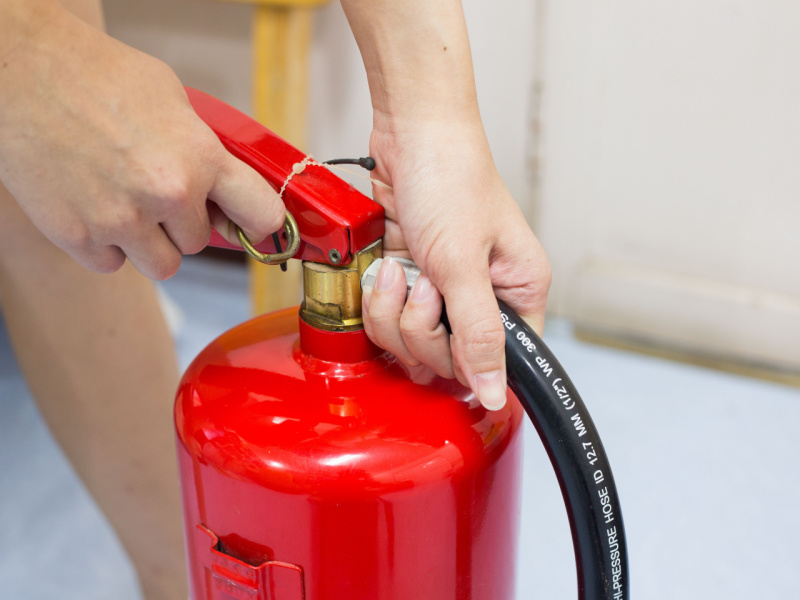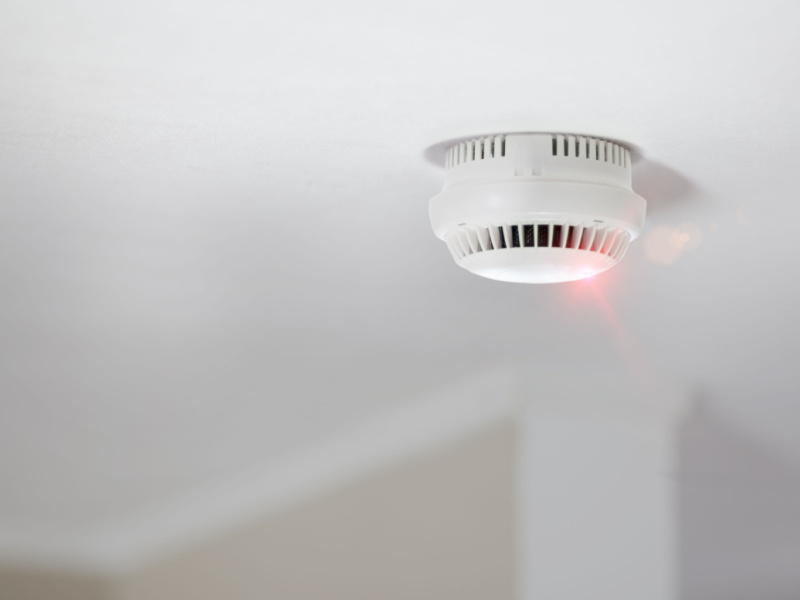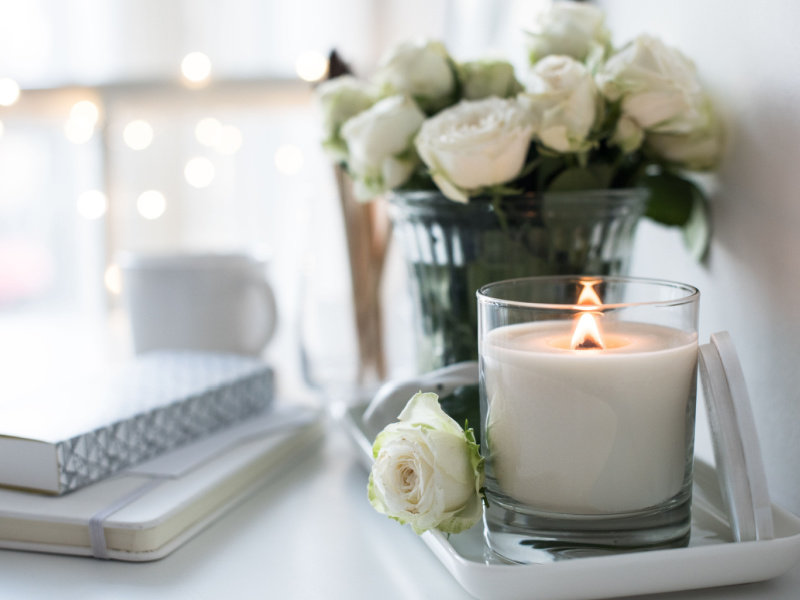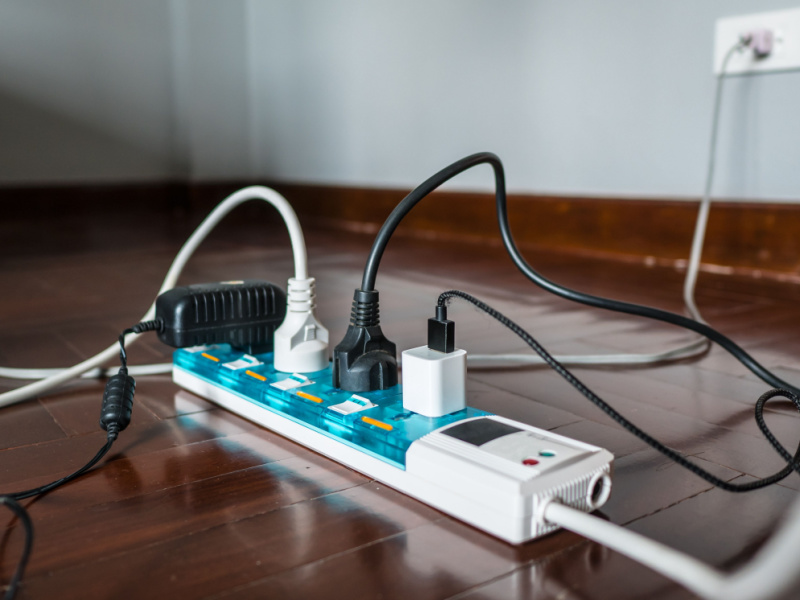Fire Safety Tips: How to Avoid Disaster in Your Apartment
Protect your pad from fire damage.

Protect your pad from fire damage.

Knowing basic fire safety guidelines, including how to put out a fire, can be literally life-saving. If you rent an apartment, it’s especially important.
Consider the risks: Fires can cause much more damage in multi-unit buildings than in single-unit homes because of the large number of people living in close proximity to one another, some of whom may or may not be at home when the fire breaks out.
That makes you one of the first lines of defense against potentially devastating fires that could devastate your property as well as that of your neighbors. (Hey, no pressure.)
Let’s dip into the basics of fire safety. Your mom would be so proud.

News flash: If a fire starts in your apartment, you need to react quickly. A fire can become deadly in 30 seconds, so it’s important to be prepared.
The only time you should ever try to extinguish a fire yourself is if:
Before a fire breaks out, you’ll want to be prepared. That means having a good idea of how you’d vacate your apartment in an emergency—an escape route—as well as working knowledge of how to use a fire extinguisher.
However, no one should attempt to put out a large fire that’s continuing to grow. Leave the apartment and call 911 to get the fire department.
Extinguishing a fire yourself requires you to know how to use a fire extinguisher. To do so, the United States Fire Administration recommends remembering the acronym PASS, which stands for:
Some important tips to remember when using a fire extinguisher:
In most cases, you’re going to want to use a proper fire extinguisher, not water, to put out a fire in your apartment. This is especially true if you’re dealing with a grease fire, a fire involving flammable liquids, or an electric fire. In those cases, trying to dump water on the problem would actually make it worse.
Make sure you have a reliable, working fire extinguisher in your apartment—or more than one! There are also smaller-sized extinguishers that can fit easily into the cabinet below your sink, in case of a kitchen fire.
Hopefully, you’ll never be in a situation where you’re extinguishing fires in your home. Anyone who has suffered through a fire knows that it can be traumatic, not to mention expensive. One silver lining is that renters insurance will help cover the damage to your personal property.
That’s a nice back-up plan, but a better plan is to prevent fires in the first place. Let’s take a look at what you can do.

Both are vital to early fire detection and safety. In fact, three out of every five residential fire deaths are in homes without smoke or fire alarms.
According to the Consumer Product Safety Commission, “[p]roperly installed and maintained smoke alarms are considered to be one of the best and least expensive means of providing an early warning of a potentially deadly fire and could reduce by almost half the risk of dying from a fire in your home.”
Therefore, be sure to check the batteries of both devices every two to three months to make sure they’re working properly. In many states, your landlord may be required to provide working fire and carbon monoxide alarms in your apartment.
50% of home fires are kitchen fires, which is why it’s incredibly important to take precautions when cooking. If you’re making a quick stir-fry, don’t run into the other room “for just a minute,” since that’s all the time a fire would need to start spreading.
Once you are finished using burners or other kitchen appliances, make sure they are turned off and unplugged. Don’t wear large, baggy sleeves that can catch flames easily, and be extra careful when cooking with hot oil, which can lead to grease fires.
Grease fires occur when cooking oil becomes too hot. Vegetable oils have a smoke point of 450F, while animal fats have a smoke point of 375F. Never throw water on a grease fire to put it out, since that will only make the fire worse.

Keep burning candles in sight and keep them a safe distance away from combustible materials or flammable materials, such as blankets or clothing. Lit candles should be placed on flat, sturdy surfaces high off the ground, like on countertops, to prevent anyone from accidentally knocking them over.
If you don’t trust yourself with candles, companies like Luminara make faux-candles that mimic the real thing without the risk.
Space heaters can easily accumulate dust, which can lead to electrical fires. If you’re using a space heater in your apartment, clean it as necessary and make sure the cord and plug are both intact. If you notice the cord has any burn marks or has melted, stop using it immediately—it’s more likely for the device to start an electrical fire.
Keep space heaters three feet away from any flammable or combustible objects while in use and never leave them on unattended or while you’re asleep.
If you smoke, it’s best to do so outside away from trees and bushes. Make sure to extinguish cigarettes completely using an ashtray. Lit cigarettes in an apartment can cause flammable materials like furniture, clothing, or other materials to catch fire very quickly. Needless to say, don’t smoke in bed, or in any situation where you might nod off holding a lit cigarette.

Surge protectors are used to prevent electrical outlets from being overloaded by too many devices. An abundance of electrical equipment plugged into the same outlet can cause electrical shorts or sparks, which can lead to fires.
Smaller electrical items, like lamps, can be plugged directly into the wall. However, larger appliances, such as televisions, refrigerators, and computers requiring constant electricity, should be plugged into surge protectors.
It’s vital to understand what to do if a fire occurs in your apartment, as well as tips for prevention. Additionally, purchasing renters insurance provides financial protection and a sense of security.
Not only does renters insurance cover property damage caused by both smoke and fire, it can also help cover additional living expenses in case you’re forced to evacuate your home after a fire.
Getting covered is always a safe and smart decision.
Please note: Lemonade articles and other editorial content are meant for educational purposes only, and should not be relied upon instead of professional legal, insurance or financial advice. The content of these educational articles does not alter the terms, conditions, exclusions, or limitations of policies issued by Lemonade, which differ according to your state of residence. While we regularly review previously published content to ensure it is accurate and up-to-date, there may be instances in which legal conditions or policy details have changed since publication. Any hypothetical examples used in Lemonade editorial content are purely expositional. Hypothetical examples do not alter or bind Lemonade to any application of your insurance policy to the particular facts and circumstances of any actual claim.